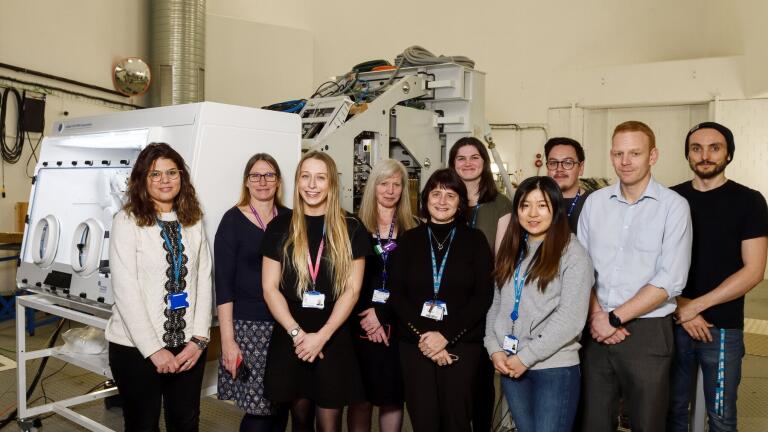
Laboratory products
The PRECISE Group at the University of Manchester, The Christie NHS Foundation Trust and Don Whitley Scientific today announced the world’s first Proton Radiobiology Modified Atmosphere Workstation with integrated robotic arm, which will be used for research into cancer treatments. The Proton Beam Therapy Centre at The Christie, Manchester, is the first NHS high energy proton beam therapy centre in the UK. Within the facility there is a dedicated research room, which was funded by The Christie Charity, where this new Whitley Workstation will be operated. The workstation with its integrated robotic arm was funded by CRUK Manchester Major Centre funding.
Proton Beam Therapy (PBT) is an advanced form of radiotherapy using a high energy beam of protons, rather than high energy x-rays, to deliver radiotherapy. PBT directs the radiation treatment to precisely where it is needed with less damage to surrounding tissue.
A few years ago, Don Whitley Scientific (DWS) was approached by the PRECISE Group to collaborate on the creation of a specialised workstation to allow multiple experiments to be conducted under hypoxic conditions in a rapid and efficient manner.
DWS Design Director, Evan Kitsell, commented: “We were delighted to be invited by the PRECISE Group at the University of Manchester to collaborate with them in developing the first modified atmosphere workstation of this type. We worked very closely with them to ensure that their preferred protocol could be accommodated in a Whitley Workstation. It’s humbling to know that this project will accelerate an understanding of the best way to utilise PBT in the ongoing fight against cancer.”
The workstation controls oxygen in 0.1% increments up to 20%; carbon dioxide in 0.1% increments up to 15%; and relative humidity up to 80%. Researchers are able to set up the ideal conditions for their experiments, essential for research into the response of hypoxic cells to proton or proton-flash irradiation. Within the Proton Radiobiology Modified Atmosphere Workstation, there is a racking system, which users pre-load with up to 36 samples contained in multi-well plates and/or tissue culture flasks. The workstation incorporates a precision, multi-axis industrial robot so that samples can be taken from the racking system, subjected to the beam, and then returned to the rack. This arrangement automates the testing process so that the largest possible number of experiments can be performed, under repeatable conditions and in the shortest possible time, without human intervention.
Professor Karen Kirkby from the University of Manchester and The Christie stated, “We really enjoyed working with Don Whitley Scientific on this project. We were fascinated by their approach to product development, which was a combination of taking the time to understand our needs, brainstorming, traditional model making, industry standard solid 3D modelling and old-fashioned common sense. The DWS team went well beyond the call of duty to ensure that the supplied workstation exceeded our expectations. We hope to start experiments in the next few weeks that we have looked forward to performing for so long.”
It is highly significant that the first modified atmosphere workstation of this type should be installed in Manchester, where the proton was discovered by Sir Ernest Rutherford in the early 20th Century. The potential for treating patients with protons was realised as long ago as the mid-1940s.